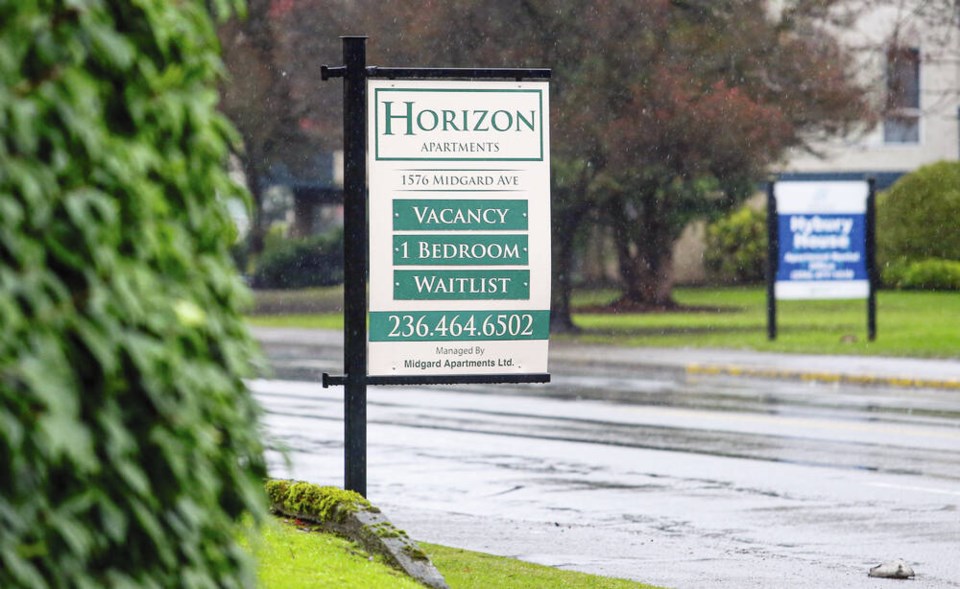I was an adjudicator for the quasi-judicial appeal panel hearing and deciding on rent increases under the Manitoba Residential Tenancies Act for eight years before retiring and relocating to Victoria.
I am one of those voices calling on the B.C. government to adopt the Manitoba rent-management model and end the loophole that allows landlords to increase the rent in a unit vacated by a tenant by any amount, with no requirement that the rent increase be related to actual cost increases, or improvements.
This loophole plays a significant role in pushing up the level of base rents in high-demand areas like Victoria. The normal tenant turnover in properties handled by landlords with large holdings is of a sufficient critical mass to normalize ever-increasing base rent levels to pass through property value increases to tenants.
The argument is that base rents must increase to reflect increased values, regardless of how far beyond the actual cost increases incurred they are.
What is not said is that the loophole allowing rents to be increased to whatever the market will bear pays the landlord twice. First, through the increased rents enabled by tenant turnover, and second, when the property is sold.
Vacancy rates in Victoria are painfully low, and so the further argument that the loophole allowing any level of rent increase when a unit is vacated is what creates housing is obviously not correct.
As well, the argument that Manitoba’s rent-management model stifles construction is not true. Manitoba’s economy is one of Canada’s slowest-paced, although it has perked up somewhat in the past few years.
During my time in Manitoba, up to 2015, the common quip was that the most endangered species in the province was the construction crane.
But this was Manitoba’s plodding economy, as evidenced by rent management enduring even when governments changed stripes from NDP to Conservative.
The core formula of allowable rent increases based on actual cost increases has never been sullied with. None of the changes mentioned touched the fundamental principle of housing security through rent management.
All this to say, there are two philosophies about rent management.
The first is that in highly desirable areas like Victoria there is an inherent right for rent levels to be set at whatever renters will pay, to allow appreciating property values to be passed through to tenants moving into recently vacated units in increased monthly rents.
Then, that increased value is recouped a second time when the property is sold. Unfortunately, that recoup is not passed back to the tenant who paid for it up front.
The second philosophy is what Manitoba enshrined many years ago. People have the right to housing security, and for tenants, this means that rents need to be managed and predictable.
Provisions ensure that landlords obtain a fair return and can recoup all costs incurred. However, rent increases do not include duplicating the premium for property value increases that the landlord already retains in their ownership of the property.
The Manitoba model of rent management is one that I believe is fair and equitable for all concerned.
But, it is true that it does not suit those who with the capacity to provide rental housing but won’t unless they continue to have the freedom to increase rents for voluntary vacates by any amount.
Allowing rents to be increased in accordance with the appreciation in property values just because a tenant is turning over subscribes to the philosophy that housing is a privilege and not a right.
I get it. Since relocating here I have learned how deeply embedded the right to extract property value increases from tenants is. To me it is an injustice, but the development sector is powerful and central to B.C.’s economy.
Taking that right away would be quite the battle.
And as long as the B.C. government subscribes to its policy on allowing rent increases of any amount when a tenant voluntary vacates, citizens know that they choosing to forego this battle.



